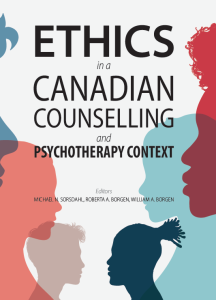Now in Effect
Members of CCPA have a responsibility to ensure that they are familiar with the Code of Ethics, to understand its application to their professional conduct, and to strive to adhere to its principles and values. Counsellors should also be familiar with the CCPA Standards of Practice, as well as with other sources of information which will assist them in making informed professional decisions. These include the laws, regulations, and policies which are professionally relevant to their working environment.
Members of the public who are not satisfied with the practices or behaviours of a CCPA member have the opportunity to submit a complaint to the CCPA Ethics Committee. CCPA is not regulated by statute and therefore its disciplinary procedures are not subject to the same administrative principles as are tribunals established by legislation. The CCPA is, however, committed to the principle of fairness and the procedures outlined herein are intended to ensure complaints are processed in an equitable fashion having regard to the interests of all parties and the geographical and financial limitations involved.
File a complaint
Do you think one of our members’ behaviour was unethical? Fill out the applicable form and send it to us.
Registration Verification
Would you like to get your registration verified?
Online Ethics Training
Learn about ethics in counselling & psychotherapy or refresh your memory with this new online ethics training!

Introducing the new 2023 case study book, Ethics In A Canadian Counselling And Psychotherapy Context.The co-editors Dr. Michael Sorsdahl, Dr. Roberta Borgen and Dr. Bill Borgen took the approach of drawing from feedback of CCPA members and contributions from external sources. This case study book intends to help counsellor educators, supervisors, counsellors, counselling therapists and psychotherapists seeking to build their ethical practice.Click here to watch an overview of the book!Physical and digitally watermarked versions are now available online. Contact us at [email protected] to place an order! |
Information regarding how to file a complaint can be found in our Ethical Complaints Procedures Manual.
Contact Us!
Ethics Complaints
Margot Mutombo
Complaints Division: The Ethics Complaints Division responds to individuals who aren’t’ satisfied with the practices or behaviours of a CCPA Member, and who wishes to submit a complaint. This division also handles requests related to regulatory Colleges registration verifications.
Contact Margot for these requests.
Ethics Queries
Andreea Andrei
Query Division: The Query/Education Division responds to Members needing guidance and/or support related to understanding the Code of Ethics and the Standards of Practice. I.e managing confidentiality, informed consent, conflict of interest, supervision, clients records, e-counseling and practicing remotely.
Contact Andreea for these requests.